Updated on August 27, 2024 by Angelika
Over the course of my life, I have lived in various cities, all of which have their own stories and special features. Each of these places has shaped me and given me valuable experiences and memories. In this article, I would like to take you on a journey from my hometown of Sindelfingen to the state capital of Baden-Württemberg, Stuttgart, the venerable Hanseatic city of Bremen and the IT strongholds of California. From my childhood in Sindelfingen to my education and first professional experiences in Stuttgart, the joys and dramas in Bremen and the intense experiences in California, each of these places has shaped me in its own way.
These cities are more than just geographical points on the map - they are stations in my life that have allowed me to grow and have made me the person I am today. Join me on this road trip into the past and discover the places that were important for my personal history and with which I associate special memories.
This is my contribution to my blog parade The Places I Have Lived in., which you can contribute to until September 1, 2024. With this blog parade, I participate in The Content Society blog parade summer.
Hometown Sindelfingen: Where it all Began
Did you also find your hometown boring when you were young and wanted to leave as soon as possible? I grew up in the "Daimler city" of Sindelfingen - and returned to Swabia after an eight-year stopover in Bremen.
In the 1960s and 1970s, we walked almost all the distances, even to the Hertie department store in the neighboring town of Böblingen. We lived in a new residential area on the Goldberg, close to the city limits of Böblingen, with typical 1960s apartment blocks. By the standards of the time, these spacious apartments were a sign of incipient prosperity. The streets were quiet, so we children could go roller-skating without our mothers having to worry.
Where the A81 now runs between Böblingen and Sindelfingen, there was a large meadow - our play paradise. Behind it was the railroad line, over which there was a bridge. Our mother often sent my sister and me with a tin milk can to the farm on the Böblingen side of the bridge to get a liter of milk. We reached the outdoor pool after a twenty-minute walk, which we did almost every day in midsummer. We often played hide and seek in the adjacent forest. I don't think there are any children who still play alone in the forest these days ...
As soon as I could read, I was drawn to the modern Sindelfingen city library. In the afternoons, I would walk down Goldberg into town with my friends to browse through the books there, because we would have had to take the money for a bus ticket out of our pocket money.
The Sindelfingen's old town with its many half-timbered houses - now renovated and spruced up — wasn't exactly a gem back then. We only went in this direction to listen to Beatles LPs in the record store, which we then bought, spending all our pocket money on it.
Towards the end of my school years, I had had enough of provincial Sindelfingen and wanted to move to a real city as soon as possible, having already got to know London and Berlin.
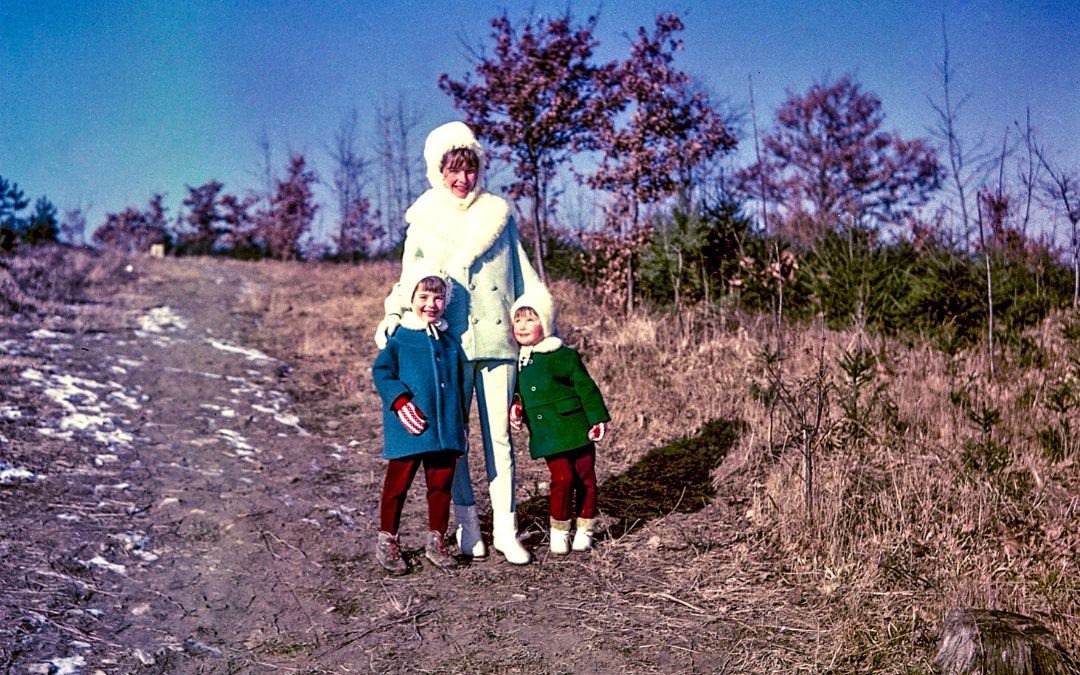
Stuttgart: Language studies, career start and relationships
After 11 years, school became unbearable for me — but looking back, it was just one particular teacher who had made my life hell. I decided to become a business correspondent for English. My parents were perhaps even happy not to have to pay for me to study German for a long time. I found an affordable language school in Stuttgartwhich offered the required training course. With the basic knowledge of economics and business management that we acquired there, we were also able to take on clerical positions in international companies after graduation.
I took the bus to Stuttgart every day, where I had lessons sometimes in the morning, sometimes in the afternoon and made new friends. Before or after school, we would spend hours discussing the RAF and mourning the death of John Lennon in the pub around the corner with the school-leavers from the Zeppelin Gymnasium opposite and a bodyguard of the Minister President.
I got to know Stuttgart quite well during this time. I spent a lot of time with my fellow students in the cafés in the city center around Königstraße and we went to concerts, which often took place in the exhibition halls on Killesberg. The Schleyerhalle, SI-Zentrum and the new exhibition center at the airport didn't exist back then.
After graduating, I quickly found a job with a Stuttgart-based haulage company that regularly recruited graduates from our school. In the early 1980s, many baby boomers were entering the job market and I considered myself lucky to find a job so quickly. There I met Susanne again, who had also attended the language school. We were on the same wavelength, went to the big peace demonstration in Bonn's Hofgarten together in 1981, went through many ups and downs together and are still close friends today.
Despite the achievements of the women's movement, getting engaged and married was common in the late 1970s and early 1980s. I got engaged to my boyfriend when I was 19 and moved to Stuttgart with him. Apartments in the city center were unaffordable, and as my boyfriend had to do his military service, I was the main breadwinner. We moved into a small attic apartment in Plieningen, near the airport. The shower was integrated into the living room next to the kitchenette, and I started wearing earplugs at night because of the aircraft noise — a habit I've kept to this day.
Starting my career and moving out of my parents' house didn't go as smoothly as I had hoped. I felt understretched professionally and overstretched privately, which led to psychological problems and several hospital stays.
In between hospital stays, I met the clerk of a Bremen freight forwarding company and within a few months I decided to separate from my fiancé and move to Bremen.
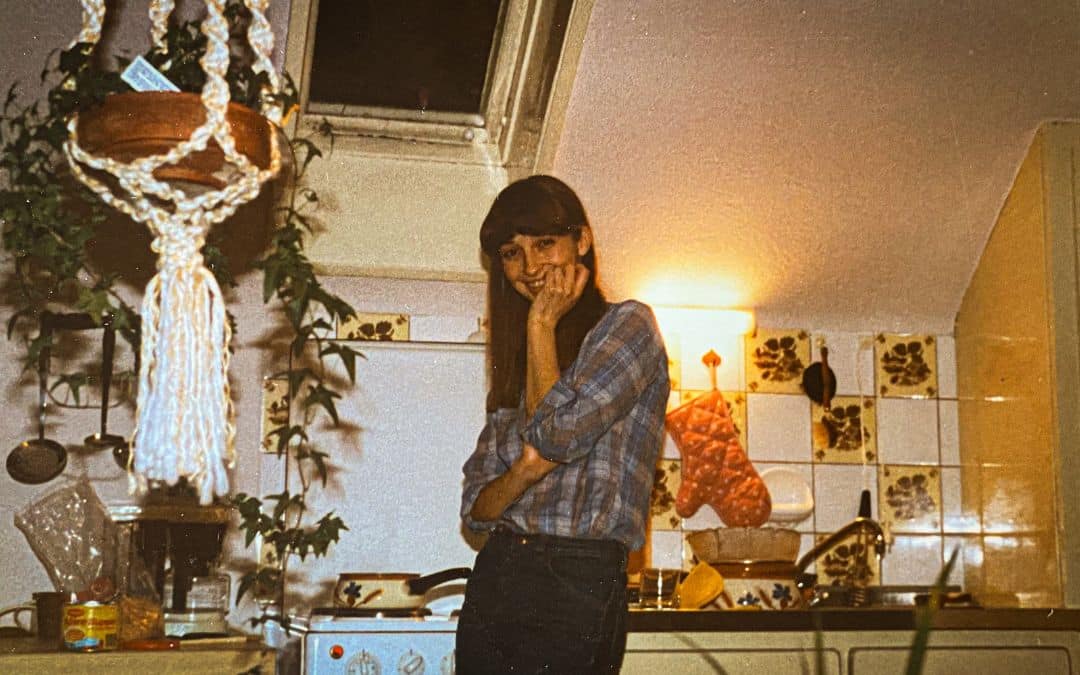
Challenges and Moments of Happiness in Bremen
Through an acquaintance of my new partner, I found a job as an executive secretary in an international law firm in Bremen. I was accepted after the very first interview. The work and the people there carried me through my eight years in Bremen, which were anything but easy.
You know that feeling when you move to a new city and everything feels strange? That's exactly how I felt at first in Bremen. The weather was mostly bad, the winters were gray and rainy, and I was often not understood when I went shopping. Although I spoke what I thought was perfect High German, the people of Bremen usually identified me immediately as a Swabian. I remember that I once ordered "smoked belly" at the meat counter and only received an uncomprehending look. After I had shown what I wanted in the display, the sales clerk called out with amusement "Oh, you mean 'striped bacon'!" During the same shopping trip, I learned that "pork neck" in Bremen means "neck chops".
But the job at the law firm was a stroke of luck for me. The work and the people there carried me through my eight years in Bremen, which were anything but easy. When things got difficult in my private life, I looked forward to going to work every day. I watched the fall of the Berlin Wall on the transistor radio with my boss. Every year in January or February, we went on a "cabbage trip" with the whole workforce. First we went on a hike. The office managers pulled a decorated handcart, which was used to transport toys, schnapps and snacks. The hikes were organized by Games such as teabag toss, group leg race or pea run loosened up. We arrived at our destination in a great mood - a restaurant where the traditional kale dinner was held, the cabbage king and queen were crowned and we danced into the night. Those who couldn't be picked up were allowed to take a cab home at the firm's expense. It was a great, collegial community between the lawyers and the office staff, in which absolutely legendary parties were celebrated.
Our daughter Anna was born on September 25, 1986, and I was the 500th mother to give birth in the new Bremen Women's Clinic. A senator from Bremen even came by with a bouquet of flowers, but I was so happy about my little screamer that I couldn't remember the senator's name. After separating from my husband, I stayed with Anna in the house in the country, about 20 kilometers outside of Bremen, so already in Lower Saxony. Anna went to a private daycare center with a transport service. Jutta, who was the driver for a while, invited herself over for tea one day and became my best friend. She supported me during this difficult time and visited us often - even after I moved with Anna in 1992 to live near my parents in Sindelfingen, where I grew up.
Although I had lived outside Bremen in recent years, the city had become my second home. I came here every day to work and spent almost every lunch break in Sögestraße, Obernstraße or on the market square. I had also become accustomed to Bremen's vocabulary and food. It had become second nature to me that a Lyoner is called Mortadella here, a Fleischwurst is called Gekochte ("with" or "without" ... garlic) and that salami is called Mettwurst (also "with" or "without"). Back home, I was shocked to discover that when you ask for mortadella at a Swabian butcher, you get mortadella and not lyoner.😆
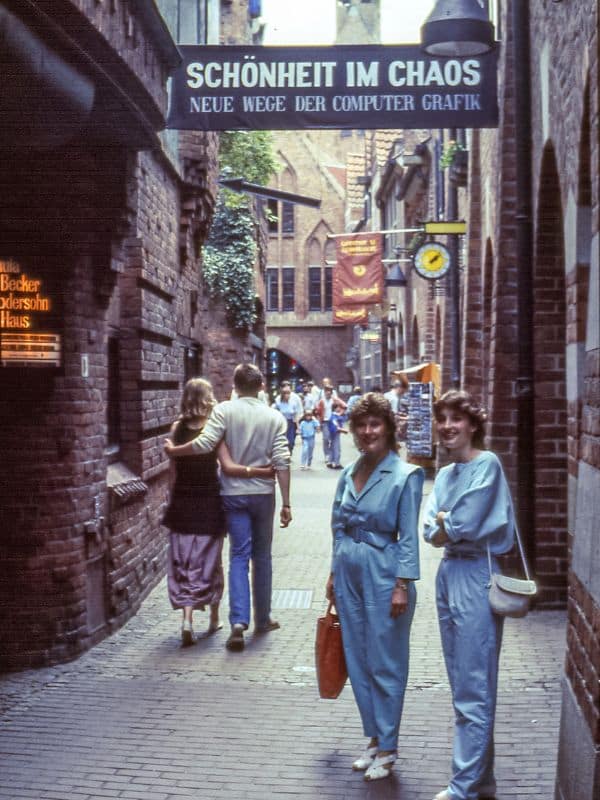
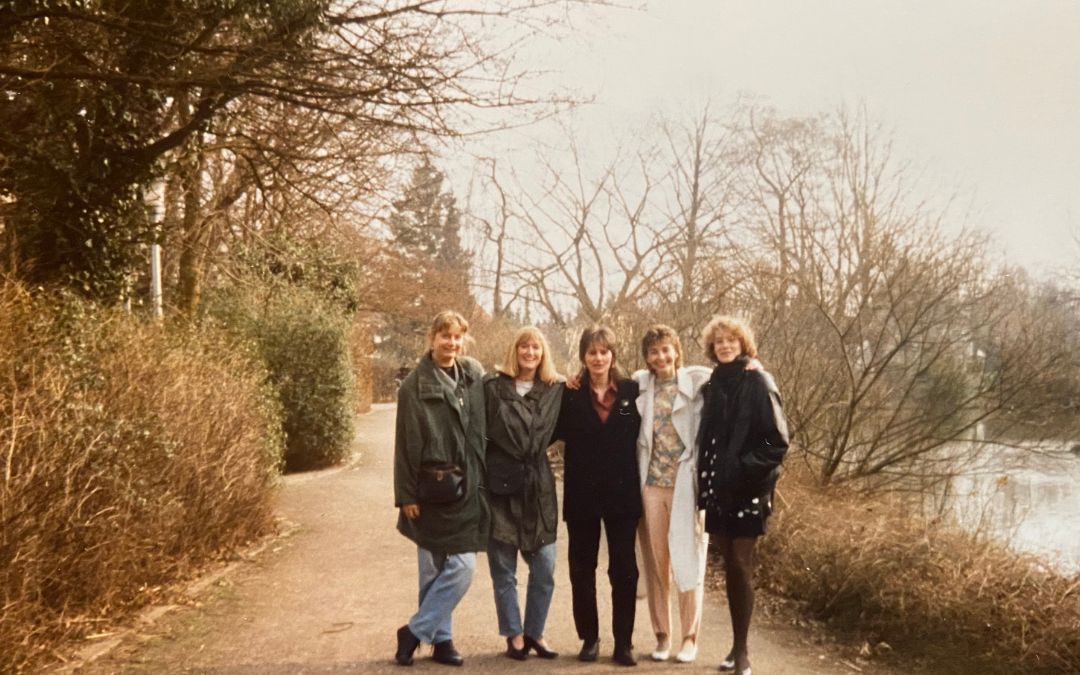
Sindelfingen: A New Start at Home
I had missed my parents and my sister and was looking forward to being near them again. But returning after eight years was almost as difficult as moving away. It wasn't just hard for me, but also for my five-year-old daughter. A new apartment, a new nursery, her dad, brother and Jutta far away - everything changed for her. We didn't live directly in Sindelfingen, but a little outside in the district of Maichingen.
My family and my friend Susanne from my time in Stuttgart helped us find our feet in the new environment. But I also needed a new professional challenge. After eight years at a law firm, I was bored with typing up briefs. I went back to work as a secretary for the head of the legal department at a global IT company, which even paid for my relocation — not a huge difference in terms of content, but in human terms. At first, I missed my Bremen lawyers and colleagues very much, but I knew there was no going back.
Over time, I familiarized myself with the structures of the large company and took advantage of the opportunities for further training. At the end of the 1990s, I began an evening course in business administration, which was subsidized by my employer. I grew into demanding tasks and became a controller and eventually a business process analyst, initially at German, later at European and finally at global level. This allowed me to travel on business, which was previously not possible as a single mother. I flew to South Africa, India, Bucharest, London, and California.
A new partnership from 1999 brought further challenges. After ten years alone with my daughter, it wasn't working well as a threesome. I often felt torn between my child and my boyfriend. My daughter moved in with her boyfriend when she was 17, which put more strain on me than I had expected. Things became difficult at work in a new team and things didn't work out any better with my boyfriend after my daughter had moved out. Psychotherapy gave me new courage and the strength to break up after six years of living together. My friend Jutta from northern Germany suggested we set up a shared flat together.
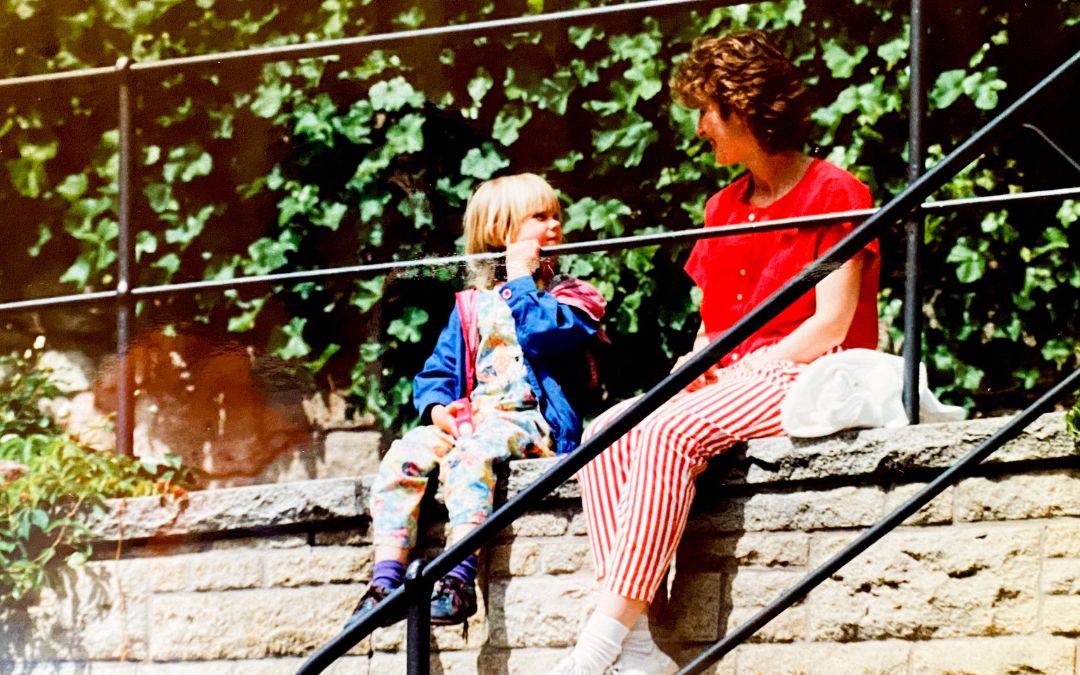
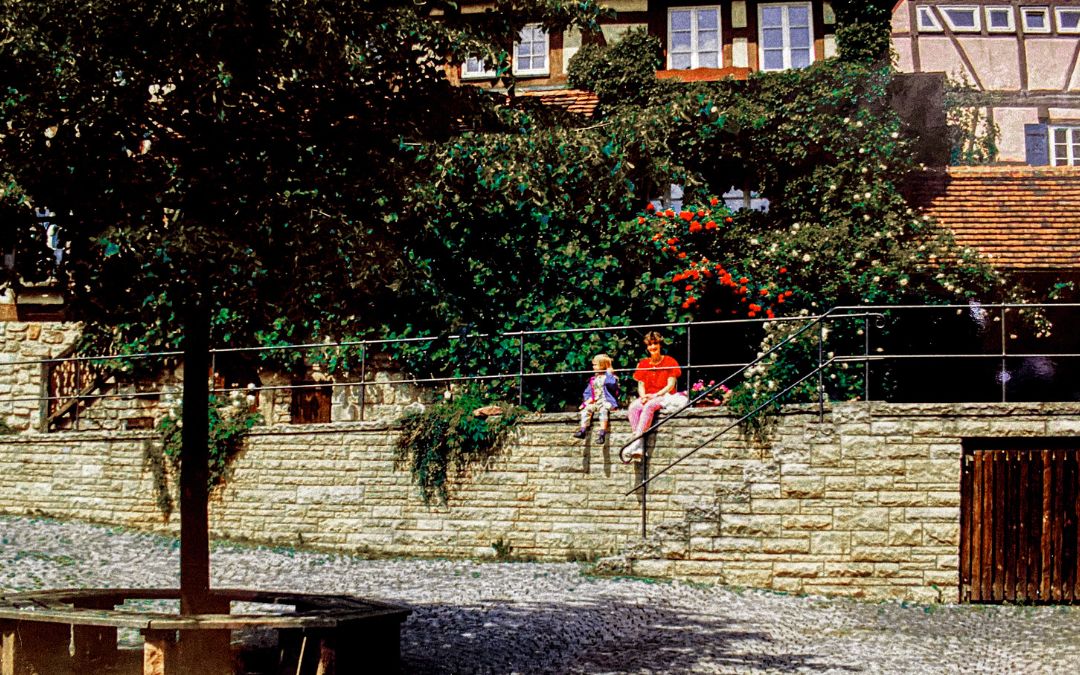
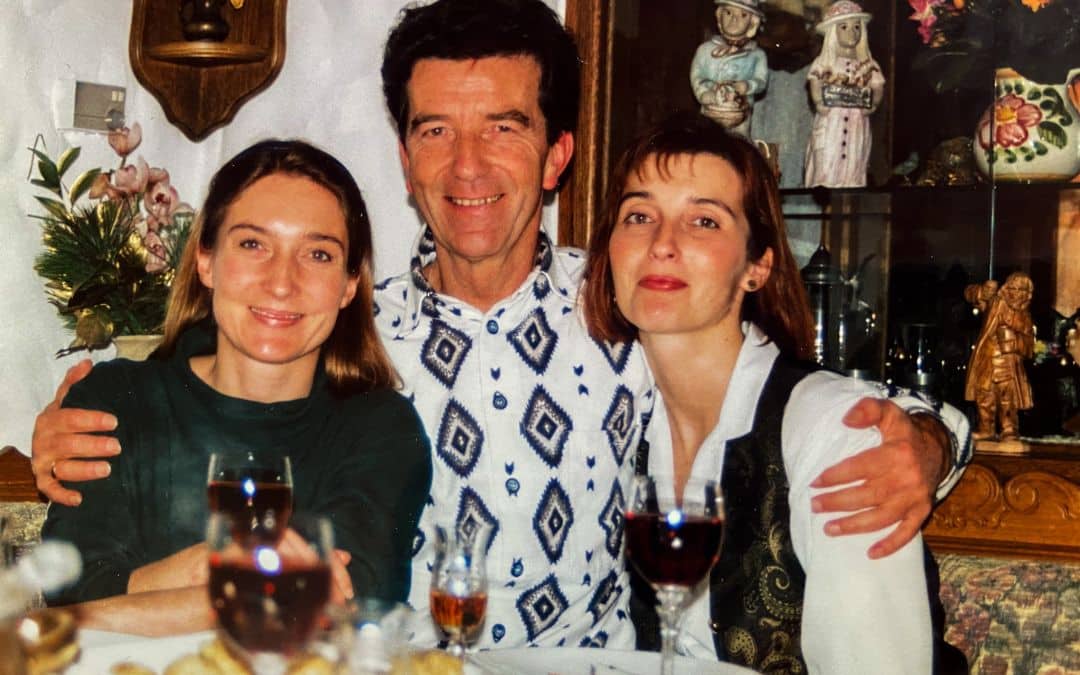
Herrenberg: A Shared Flat with my Bestie and Professional Turning Points
Herrenberg, a charming little town on the German half-timbered road, became my home for over two years. I shared a three-room apartment with Jutta, which was very good for me after my daughter had moved out, and I had separated from my partner. Our life in the shared flat was harmonious and full of wonderful experiences, even though Jutta couldn't prevent me from throwing myself into work to meet the demands of my new job as a project controller.
I had great difficulty settling into the new tasks and, above all, the new team. But it's in my nature not to give up. The turning point in my professional life was a four-week trip to India with my manager, where I was supposed to train the Indian project controllers on site. I was one of the few who was willing to do it - more than that, I really wanted to! I worked endless overtime to prepare for the training alongside my day job.
In my previous job as a training coordinator, I had already traveled to South Africa several times to hand over my tasks to my Johannesburg colleagues. It was easy for me to establish a relationship with people from other cultures and to pass on my knowledge. The fact that I am interested in all things foreign and unfamiliar helped. The three weeks in the office in Chennai and the subsequent one-week tour of Rajasthan with my manager at the time are unforgettable experiences.
This was the beginning of my best time professionally, and things were progressing steadily. My managers supported me and appreciated my intercultural skills.
After two years together in Herrenberg, Jutta moved back home to help her seriously ill mother. As I wanted to live closer to my workplace, I looked for an apartment in Sindelfingen, just a few kilometers away from my parents, where I still live today.
Shortly afterward, my daughter Anna moved to Innsbruck, which was very upsetting for me, as we had seen each other at least once a week until then.
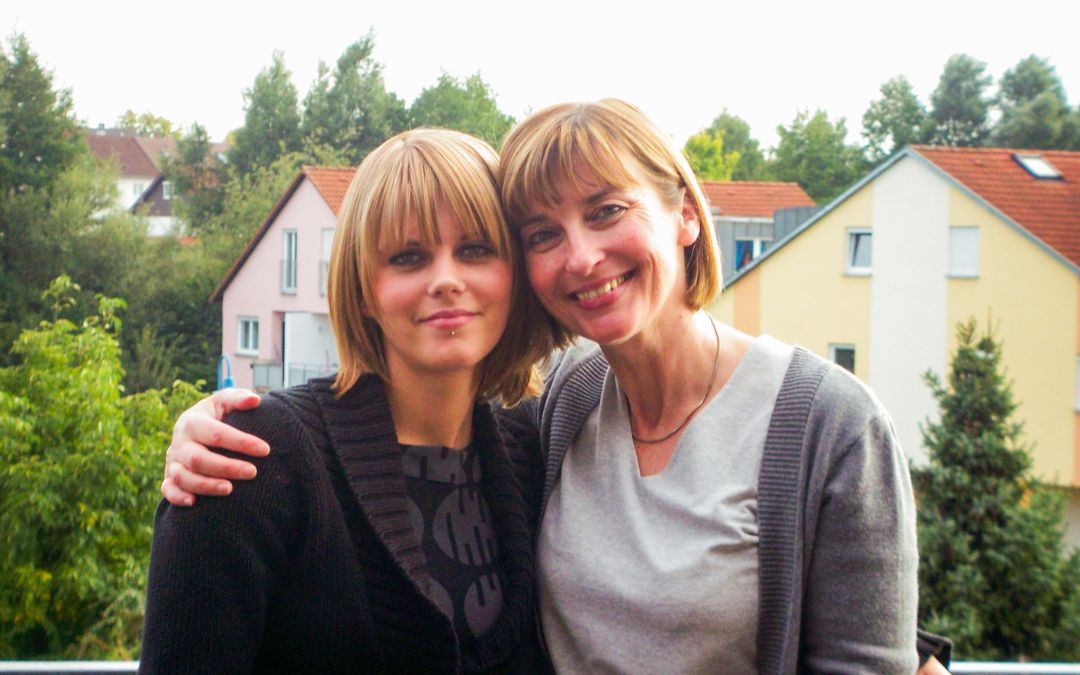
Roseville, California: From Dream to Nightmare
I'm including the year from November 2016 to the end of 2017 in my overview of the places I lived in, because it felt like I no longer had a home and was mainly living in hotels. This experience fundamentally changed my life and my attitude towards traveling, especially towards digital nomadism.
In April 2016, my mother died unexpectedly, a shock for our family. To take my mind off things, I threw myself into work. I was delighted when I was offered the opportunity to work on an international IT project in the fall, which involved a lot of travel to the USA. In November 2016, I flew to Sunnyvale, California, for the first time and extended my stay for a weekend in San Francisco - a childhood dream come true. I will never forget my hike past the Painted Ladies across the Presidio to the Golden Gate Bridge, where I enjoyed magnificent views of the iconic bridge under absolutely clear skies.
Monthly trips to California, each lasting one to two weeks, followed, and our meetings were moved from Silicon Valley to Roseville near Sacramento to save costs. Although the time pressure increased, I enjoyed the first few months of my new life and used the overtime for short private trips before or after work assignments, for example a road trip on Highway No. 1 from San Francisco to Los Angeles. These were wonderful experiences for which I am grateful.
From the spring onwards, the pressure increased and we no longer went to the canteen for lunch during our project meetings. The food was delivered to the conference room by caterers so that we could continue working. We also often worked on Saturdays. I wasn't particularly impressed by the town of Roseville. I only remember a few shopping malls that we occasionally visited in our limited free time and restaurants where we sometimes spent an evening together as a team.
When we flew back to our home countries between the meetings in Roseville, everyone had to continue working at full speed on their own tasks. None of my project colleagues worked at the same location as me. I therefore mostly worked from home and only went to the Böblingen office once a week to see my old colleagues. Conference calls only took place after 5 p.m., as they were based on American working hours. For Europeans, this meant working late into the evening, and for Asians it was even worse — they had to set their alarm clocks to dial into meetings in the middle of the night. My family still talk about how I was almost unavailable to them. When my sister called me in the evening, I often said, “I don't have time — I have to work.”
After the go-live of our project in November 2017 - after a year of chronic jet lag - I slept a maximum of 4 to 5 hours a night. Even sleeping pills no longer helped. My head was getting fuller and fuller, I could no longer sort my thoughts, I didn't know which email to open first thing in the morning. Which of the 40 tasks that jumped out of my inbox should I tackle first?
On December 6, 2017, I broke down. A manager from the US had sent me a list of 100 questions from her team that night about the new processes, which I was supposed to answer in a conference call that evening. I stared at my screen and felt paralyzed. I didn't know anything anymore, I was totally empty, like a vacuum. I switched off the PC and went to my GP, who immediately put me on sick leave. Work had been my life for months and now I couldn't work any more. I had nothing to look forward to, nothing to hope for, I lay on the sofa and stared holes in the air. I never rejoined the project and after 26 years I only went into the company three more times - to negotiate my termination agreement, to sign it and to say goodbye to old colleagues.

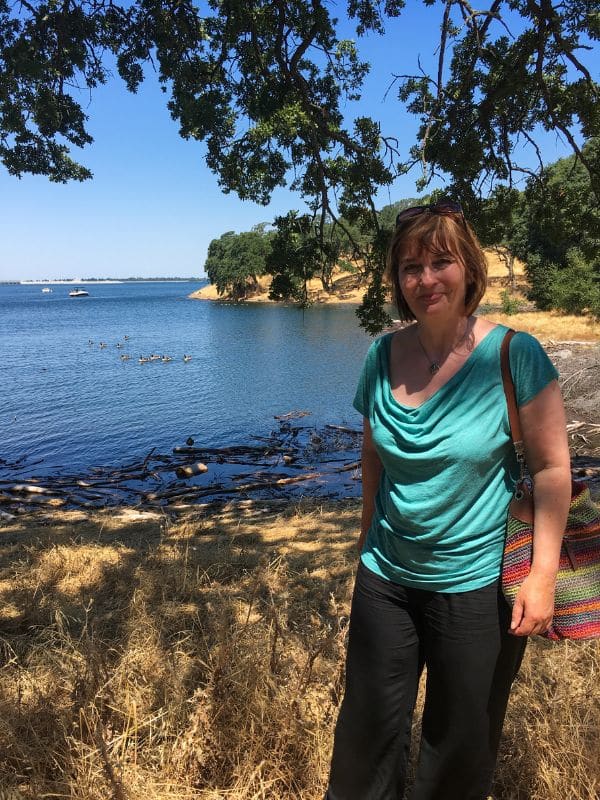
Conclusion: Home is Where Your Heart is
My burnout was followed by a long recovery process with psychotherapy and rehab. Although I missed my project colleagues, I soon realized that I could never go back to the company. A (foreseeable) side effect of the large IT project was that employees were to be laid off. I seized the opportunity and haven't regretted it for a second.
Coaching helped me to realize that I didn't want to return to the "normal" job market at all. Shortly before my 60th birthday, I decided to only do things that I really enjoy. Travel and writing have always been my favorite pastimes, and that's what I wanted to focus on from then on. In the same year - at the end of 2022 - I founded my travel blog angiestravelroutes.com and joined the blogger community. The Content Society which helped me to get through the difficult initial phase. In the meantime, I am delighted with the increasing number of readers and am proud of my persistence.
The challenging but also wonderful year in California, where I met great people and experienced unforgettable moments, was not a lost year. It taught me a lot about myself. All my life, I dreamed of living abroad or having a job where I could travel all the time. Since my burnout, I've realized that I feel at home where I have my family and other lovely people around me. That's the case in my home town. I miss my daughter, who lives in Innsbruck, very much, so I could imagine living in Innsbruck too. Home is where your heart is - I have come to realize the meaning of this saying: The heart is not attached to places, but to people. The people we love make a place our home, where we feel comfortable and where we can be ourselves.
I still enjoy traveling, but I no longer want to work while traveling. I prefer to do that at home at my desk, where I have a comfortable chair and few distractions. I've experienced it first hand: Constant jet lag is a strain on the body and psyche. I don't want that anymore. Sometimes I see people in beautiful places sitting at their laptops in a café, oblivious to the beautiful surroundings. Should that be desirable? The beauty of traveling for me has always been that my gaze is completely directed outwards and I can consciously experience every moment. I want to preserve this feeling. That's why I take lots of photos on the road - it's always been my hobby - and collect information, but I write my blog posts in peace and quiet at home.
Take part in my blog parade
This text is my own contribution to my blog parade The Places I Have Lived in.in which you can participate until September 1, 2024.
I would be delighted if you would take part. Tell us which cities you've lived in, what memories they evoke in you and how they've changed your life. You can find all the information about the blog parade here.

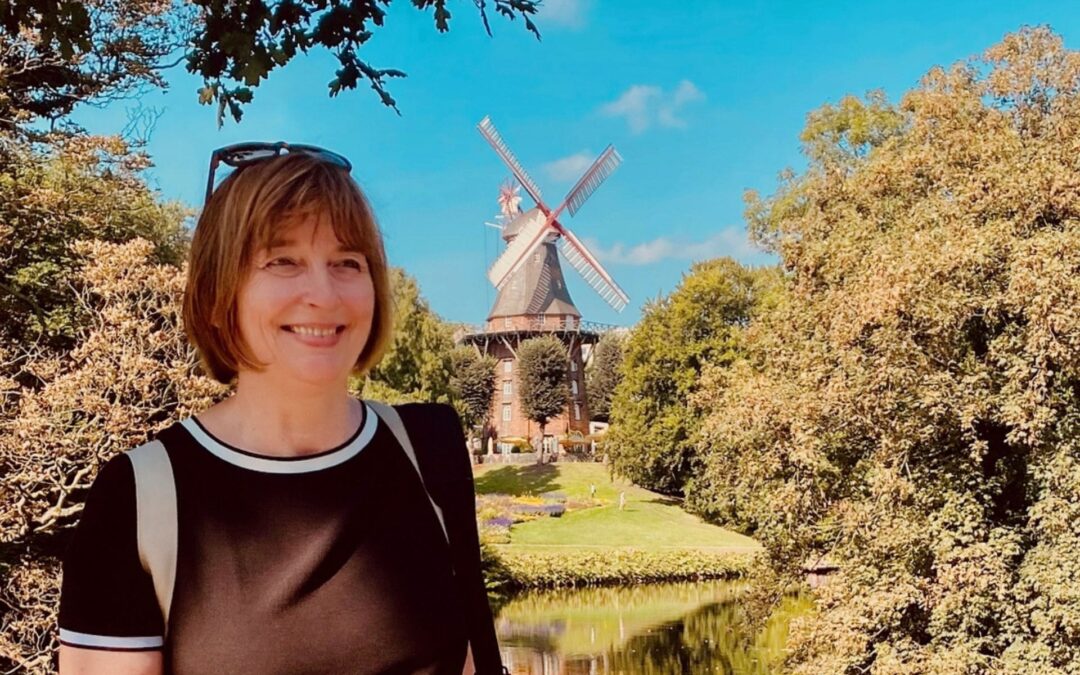
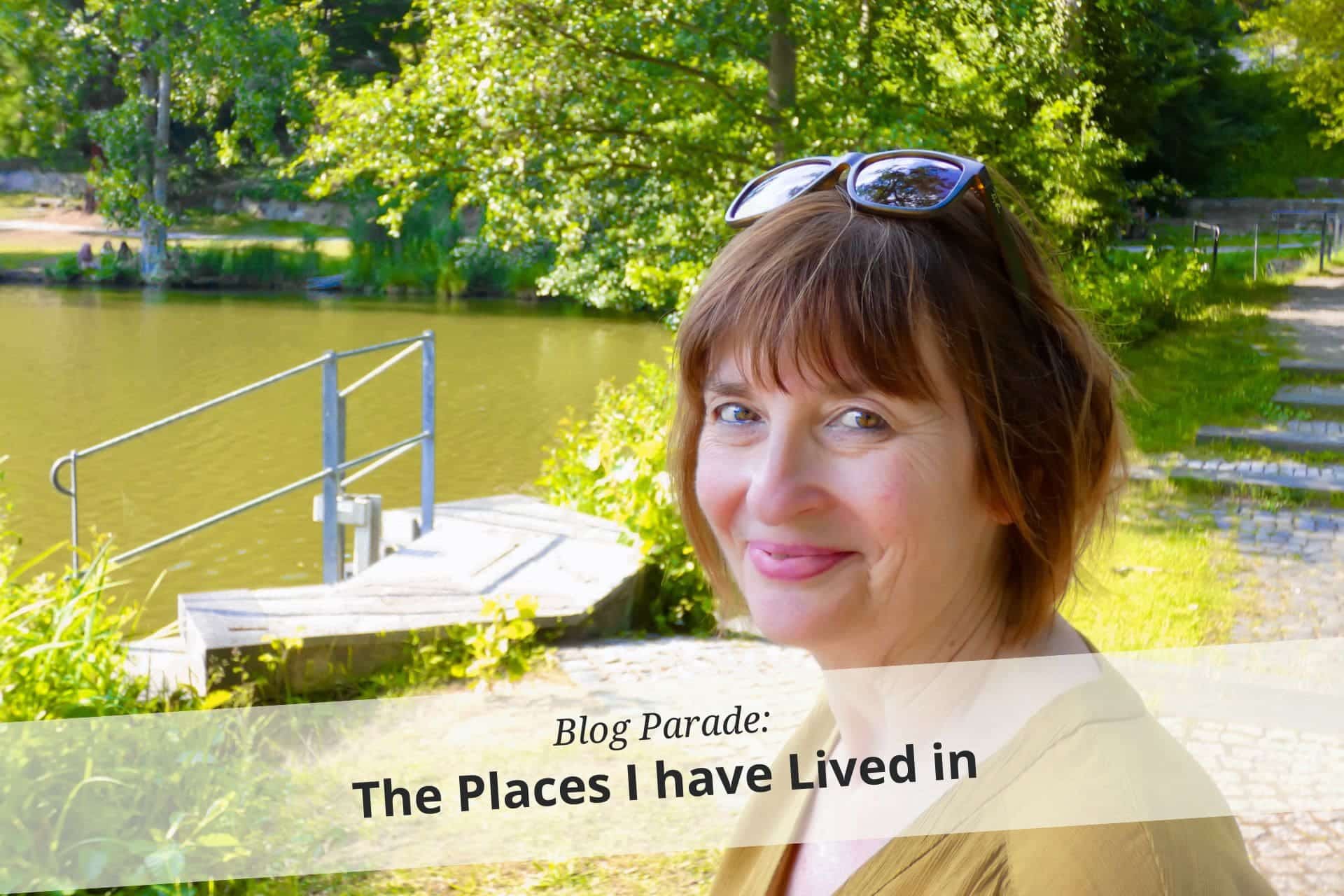

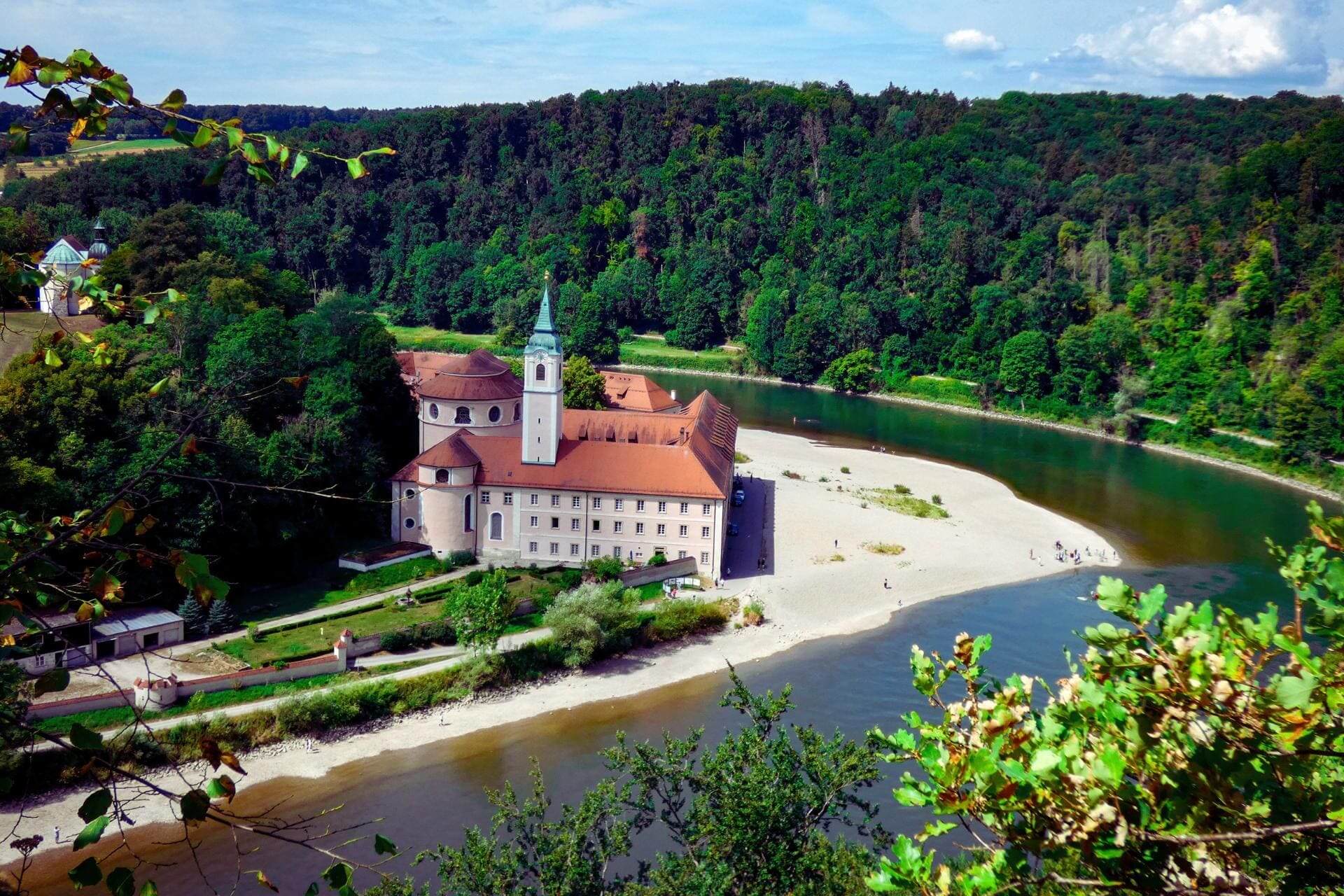

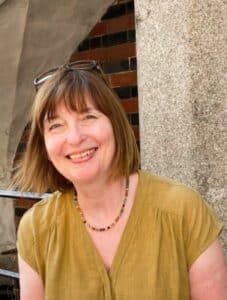
Dear Angelica,
You already know my contribution: https://weitgluecklich.com/wohnorte/
Nevertheless, I'm writing to you again because your text touched me so much! I especially know the part about work too well. Thank you for your openness in sharing this stage too. Since our resignation and the start of our trip around the world, we have looked at so many issues that we can now travel much more consciously and absorb the places holistically!
How nice that life distributes such learnings, isn't it?
Best wishes and all the best for you
Jenny
Dear Angie,
At first I didn't feel addressed, as I have also lived in small towns or villages - but when reading the other contributions I remembered that I have also lived in places worth mentioning such as Stuttgart Bad-Cannstatt or in Italy close to Vesuvius - perhaps that is interesting after all? I'm just going to join in because I like the idea!
Ciao from
Silvana
Dear Silvana,
Of course it's interesting! The important thing is not that a place is particularly beautiful or exciting, but what it means for our lives. I'm very happy about your great contribution! Thank you so much for taking part.
Greetings
Angelika